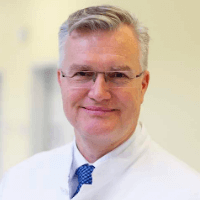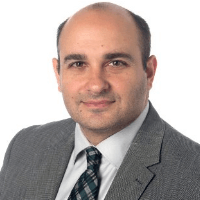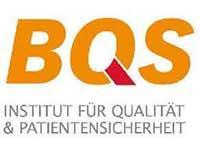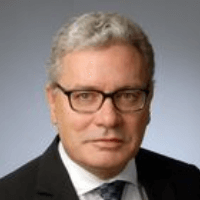Open Endarterectomy or Angioplasty for treatment of Diabetic Foot in Germany
Treatment prices are regulated by national law of the corresponding countries, but can also include additional hospital coefficients. In order to receive the individual cost calculation, please send us the request and medical records.

Innovation Center for Endovascular Medicine
The Innovation Center for Endovascular Medicine offers the full range of highly effective treatment for any diseases of the arteries and veins. Of particular interest is the endovascular treatment of aortic aneurysm, carotid stenosis, occlusive peripheral arterial disease and varicose veins. The center is equipped with two high-tech hybrid operating rooms for endovascular treatment of vascular diseases, as well as one operating room for classical open vascular interventions. The treatment can be provided both on an inpatient and outpatient basis. The highly qualified doctors of the center treat more than 3,000 patients every year, and therefore they can boast of extensive clinical experience and excellent treatment success rates. The specialists of the medical center prefer a complex and interdisciplinary approach to treatment, therefore, in appropriate clinical cases, radiologists, oncologists, cardiologists, cardiac surgeons, nephrologists and diabetologists are involved in the therapeutic process. In addition, each patient receives an individual treatment regimen corresponding to his needs and particular clinical indications. Such an approach guarantees high-quality results even in particularly complex clinical cases.





Department of Vascular Surgery
The Department of Vascular Surgery offers the full range of diagnostic services and surgical interventions for patients with diseases of the arteries, veins, and lymphatic vessels. The department's doctors have excellent skills and deep knowledge in the field of vascular surgery, ranging from complex interventions on the aorta to advanced endovascular methods for treating varicose veins using ultrasound. In close cooperation with the specialists from the Center for Vascular Diseases, the department's doctors provide an individual and interdisciplinary therapy for patients with severe vascular and concomitant diseases. The department has prestigious quality certificates from the German Society of Vascular Surgery (DGG) and a certificate from the Institute for Quality and Patient Safety (BQS). The health of patients is in the safe hands of highly qualified specialists, for whom it is important that a patient receives the most sparing and effective treatment in a pleasant atmosphere.







Department of Vascular and Endovascular Surgery
The Department of Vascular and Endovascular Surgery offers the full range of services in these medical fields. The department positions itself as a supraregional medical facility specializing in the planned and emergency treatment of all diseases of the vascular system (with the exception of the pathology of the coronary arteries and vessels located near the heart). The therapeutic options cover both open surgery and advanced interventional catheter techniques (alone or in combination with classical surgery). Modern conservative treatments are also available here.






More than 400 million people in the world suffer from diabetes mellitus. Chronically elevated blood sugar levels lead to the fact that vasoconstriction progresses against the background of the disease. As a result, the blood supply to the lower extremities deteriorates.
However, blood flow can be restored. The narrowed arteries are dilated with angioplasty, which is a minimally invasive procedure performed from inside the arteries. Open surgery is less commonly used in Germany to restore the blood supply to the lower extremity.
Content
- Vascular foot lesions in diabetes
- What is the danger of impaired blood supply in the lower extremities
- Endovascular surgery
- Open endarterectomy
- Additional treatment after lower limb revascularization
- Why it is worth undergoing treatment of diabetic foot in Germany
- Treatment in Germany with Booking Health
Vascular foot lesions in diabetes
The disease affects not only the blood vessels in the legs, but also in the whole body. High blood glucose levels lead to rapid progression of atherosclerosis: the disease develops on average 5 times faster than in patients without diabetes mellitus.
There are three key mechanisms of tissue destruction in diabetic foot. These include:
- Ischemia (insufficient blood supply).
- Neuropathy (nerve damage).
- Infection.
The best treatable form of the disease is associated with impaired blood supply. If the vessels are narrowed, they can be dilated. The larger the blocked arteries, and the higher they are located, the better the prognosis of the disease.
In fact, patients with diabetes mellitus and a vascular form of diabetic foot suffer from atherosclerosis of the lower extremities. Against the background of hyperglycemia, the pathology develops 15 years earlier and its course is more severe. This form of disease is characterised by lesions of small and medium-sized arteries. In most patients, several arteries on both legs are involved in the process.
What is the danger of impaired blood supply in the lower extremities
Angiopathy (vascular lesion) is the main cause of complications and death in diabetics. In 100% of patients, small vessels are affected by the disease, while about 70% of patients have problems with large vessels, including the lower extremities.
Blockages in the arteries of the legs cause ischemia (insufficient blood supply). If it is critical, the patient needs surgical treatment of the disease as soon as possible. In this case, conservative therapy is ineffective. If only conservative therapy of the disease is used, the risk of death within the next 6 months reaches 20%, the risk of lower limb amputation within the same period reaches 60%, and with longer follow-up monitoring – 95%.
Nonetheless, modern medicine has a solution to this problem for patients with diabetes. Doctors in Germany perform surgical procedures on the large vessels in order to restore blood supply to the lower extremity. As a result of such interventions, the lumen of the arteries dilates, more blood enters the tissues, the metabolism in them is restored, so amputation can be avoided.
With all the advances in medicine, patients with diabetes receive appropriate treatment mainly in developed countries. In countries with poorly developed medicine, in 25% of cases, the doctor immediately decides to amputate a limb, and in another 25% of cases, a patient with critical limb ischemia receives only conservative therapy for the disease. In fact, this means that the amputation will still be performed, but only after a few months. Only in 50% of cases doctors perform vascular surgery to preserve the lower extremity. Moreover, only 10% of patients undergo minimally invasive interventions.
The situation is much better in developed countries. Almost all cases of critical ischemia are subject to revascularization, so amputations are becoming more and more rare. Most arterial interventions are performed using endovascular invasive techniques (from inside the vessels).
Endovascular surgery
In Germany, as in other countries with developed medicine, endovascular surgery is used in 80% of cases for the treatment of ischemic diabetic foot (a form of the disease with impaired circulation). Doctors have to resort to open surgery through large incisions only in 20% of patients. These are mostly bypass surgeries – the formation of a blood flow path bypassing the narrowed area.
Percutaneous transluminal balloon angioplasty is the first choice for diabetic foot since 2007. This procedure is minimally traumatic, safe for health, and does not require general anesthesia.
The essence of the technique is as follows: a balloon is inserted into the arterial bed of the lower extremity through an incision in the groin. It is delivered to the area of obstruction, and then expanded by injecting saline inside. The balloon expands and stretches the artery from the inside. Its lumen increases, more blood now flows through the artery, and normal blood supply to the foot is restored.
Doctors use one of two approaches to recanalize (restore) the lumen of the artery:
- Transluminal (intraluminal) recanalization involves the insertion of a catheter into the residual lumen of the vessel.
- Subintimal recanalization is used much less often (mainly in the femoral-knee segment), the catheter is inserted between the vessel wall and the adjacent atherosclerotic plaque, thus forming a new lumen of the artery.
Surgical procedures can be performed on different vessels: iliac, femoral, popliteal segment or lower leg arteries. Some patients undergo stent implantation after balloon angioplasty. A metal frame is placed in the area of the narrowing, which keeps the lumen open.
Open endarterectomy
Open endarterectomy is a surgery performed through a large incision in the leg. Doctors remove atherosclerotic plaques from a blood vessel to enlarge its lumen.
Since open endarterectomy is more traumatic, it is rarely used in countries with advanced medicine. The main indication is diffuse atherosclerotic lesion of the lower leg vessels with plastic surgery of the deep femoral artery. Endarterectomy is also carried out when other arteries are affected, if severe calcification is detected (atherosclerotic plaques hardened due to deposition of calcium salts).
Additional treatment after lower limb revascularization
Once the treatment of the disease with angioplasty or endarterectomy is completed, blood supply to the foot is restored in more than 90% of patients. A good result of a minimally invasive procedure is a reduction in the degree of narrowing to less than 20% of the lumen.
Surgery on the arteries is only the first step in the fight against the disease. In the future, the patient requires surgical treatment to remove the dead tissues of the foot, and in case of infectious complications, an autopsy and sanitation of purulent foci is performed. However, these operations after angioplasty are much more successful, because the tissues now receive blood supply, immunity is enhanced and regenerative processes are normalized.
Despite the improvement in blood flow, surgery does not solve the problem of foot disease once and for all. In 20% of patients, there is a recurrent occlusion or stenosis of the vessels or areas of narrowing appear in other parts of the arteries within a year, so the intervention has to be repeated. The risk of lower limb amputation within 12 months is about 10%. This is an excellent result, considering that without revascularization, amputation is performed in almost all patients, and the mortality rate of such patients during the first year after surgery reaches 50%.
Thus, procedures and operations to improve blood flow can save the lower extremity in most patients, save life, and create good conditions for further treatment. However, conservative therapy aimed at normalizing carbohydrate metabolism still plays an important role in controlling the disease. In the case of non-drug procedures, there is a need for additional surgical interventions from time to time.
Why it is worth undergoing treatment of diabetic foot in Germany
Germany is a country with a high level of medicine. Here you can count on the top-class medical care. The treatment of the disease in this country is always comprehensive. Endovascular procedures and vascular surgery are considered only a single step in the treatment of diabetes mellitus.
Why is it worth undergoing treatment in Germany:
- High-precision diagnostics allows detecting areas of narrowing in the arteries in order to ideally plan treatment.
- About 80% of all interventions are performed using safe minimally invasive angioplasty instead of traumatic open surgery.
- Endovascular surgical procedures can be performed even in small-caliber vascular lesions.
- High efficiency of operations even in damage to the distal (located closer to the foot) arteries.
- With a high risk of recurrent narrowing of the artery, angioplasty is complemented with stent implantation – a stage of the operation that involves the placement of a frame inside the vessel.
- Hybrid surgical interventions: open intervention on some vessels, and minimally invasive dilation of other vessels.
- Comprehensive approach to the treatment of the disease.
Treatment in Germany with Booking Health
To undergo treatment of diabetic foot in one of the German hospitals, you can use the services of the Booking Health company. On our website, you can see the cost of treatment in Germany and compare prices in different hospitals in order to book a medical care program at a favorable price. Treatment in a German hospital will be easier and faster for you, and the cost of treatment will be lower.
You are welcome to leave your request on the Booking Health website. Our specialist will contact you and provide all the necessary information about treatment in Germany. Booking Health will fully organize your trip abroad. We provide the following benefits:
- We will choose the best hospital for the treatment of diabetic foot in Germany, whose doctors specialize in this disease and achieve the best results.
- We will help you overcome the language barrier and establish communication with the attending physician.
- We will reduce the waiting time for the medical care program. You will undergo treatment on the most suitable dates for you.
- We will reduce the prices. The cost of treatment in German hospitals will be lower due to the lack of overpricing and additional coefficients for foreign patients.
- We will take care of all organizational issues, including paperwork, transfer to a hospital or a hotel and back.
- We will prepare a program and translate medical records. You do not have to repeat the previously performed diagnostic procedures.
- We will keep in touch with the hospital after treatment in Germany.
- We will organize additional diagnostic examinations and treatment in German hospitals, if required.
- We will buy medicines in Germany and forward them to your native country.
Your health will be in the safe hands of the world's leading doctors. The Booking Health specialists will help you reduce the cost of treatment in Germany, organize your trip, and you will only have to focus on restoring your health.
Authors:
This article was edited by medical experts, board-certified doctors Dr. Nadezhda Ivanisova, and Dr. Bohdan Mykhalniuk. For the treatment of the conditions referred to in the article, you must consult a doctor; the information in the article is not intended for self-medication!
Our editorial policy, which details our commitment to accuracy and transparency, is available here. Click this link to review our policies.

